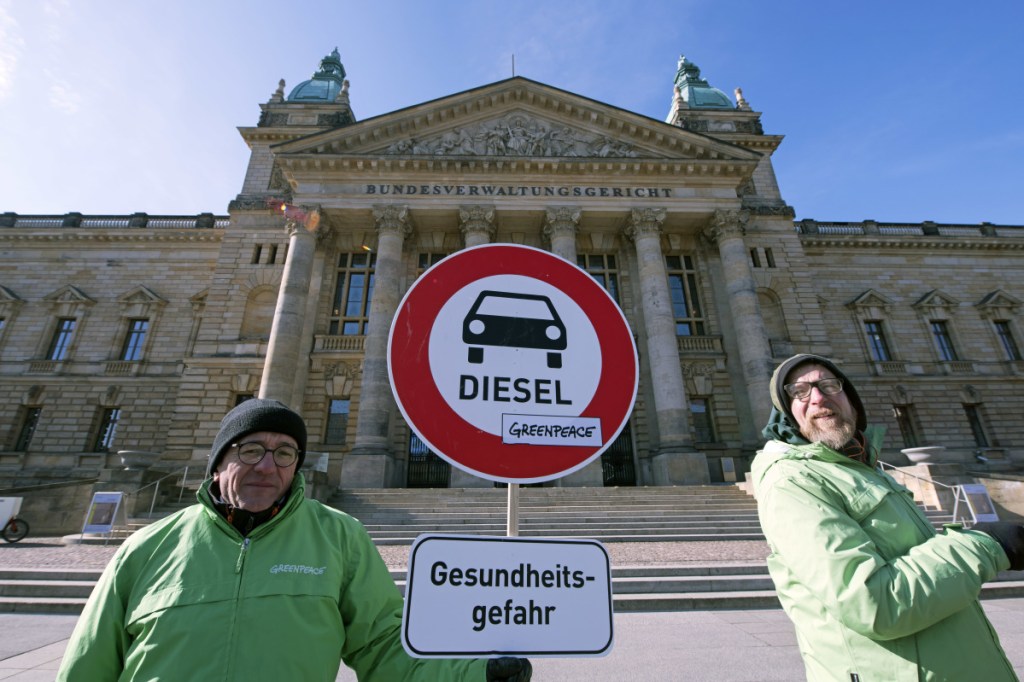BERLIN — Handing environmentalists a landmark victory, a German court ruled Tuesday that cities can ban diesel cars and trucks to combat air pollution, a decision with far-reaching and costly implications in the country where the diesel engine was invented in the 1890s.
The ruling by the Federal Administrative Court stirred fears from motorists, auto dealers and other businesses worried about the financial impact.
Chancellor Angela Merkel’s government scrambled to reassure drivers it would seek to prevent such drastic measures by pushing other ways to reduce pollution in their cities. Diesel automobiles are a popular alternative to gasoline-powered ones in Germany, with about 9 million diesel cars and several million trucks, buses and other vehicles affected by the ruling.
Overall, 1 in 3 passenger cars in Germany, home to such automakers as Daimler, Volkswagen and BMW, are diesel-powered, though the cleanest, most modern models would probably still be allowed even if cities decided on a ban.
“It’s a great day for clean air in Germany,” said Juergen Resch, head of the group Environmental Action Germany, which had sued dozens of German cities for failing to meet legally binding emissions limits.
While diesel cars produce less carbon dioxide and tend to get better mileage than gas-powered vehicles, they emit higher levels of nitrogen oxides, or NOx, contributing to respiratory illnesses and 6,000 deaths annually, according to government figures.
Send questions/comments to the editors.



Success. Please wait for the page to reload. If the page does not reload within 5 seconds, please refresh the page.
Enter your email and password to access comments.
Hi, to comment on stories you must . This profile is in addition to your subscription and website login.
Already have a commenting profile? .
Invalid username/password.
Please check your email to confirm and complete your registration.
Only subscribers are eligible to post comments. Please subscribe or login first for digital access. Here’s why.
Use the form below to reset your password. When you've submitted your account email, we will send an email with a reset code.